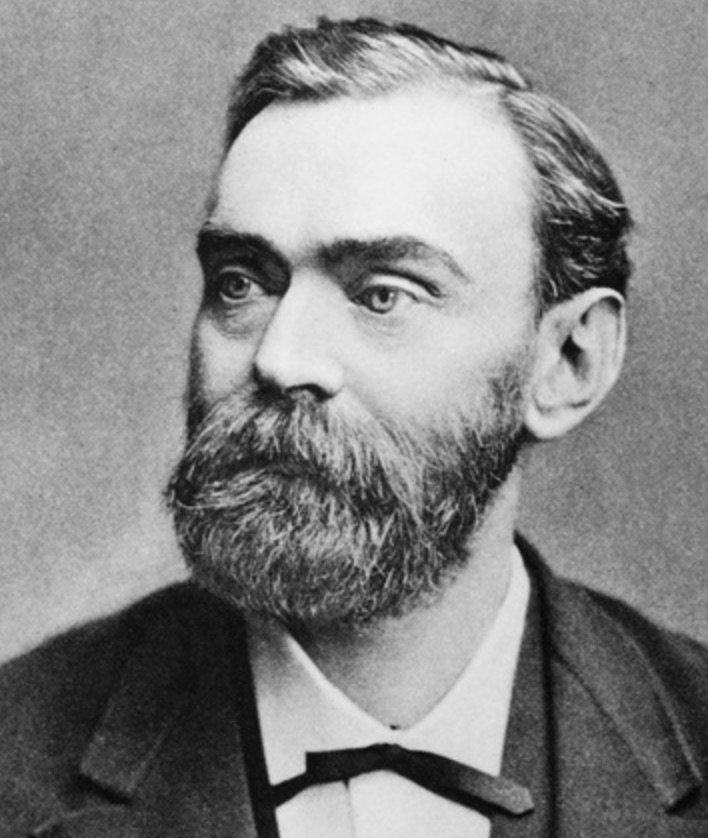
Alfred Bernhard Nobel was born on October 21, 1833, in Stockholm, Sweden. He came from a family of scientists, and his father, Immanuel Nobel, was an inventor and engineer. However, the family was struggling with poverty and of Alfred’s 7 siblings only Alfred and three brothers survived to adulthood. When Immanuel Nobel’s business went bankrupt, he left his family to establish a business in St. Petersburg, Russia, manufacturing machine tools and explosives. In 1841, Alfred attended school in Stockholm, but it would be the only school he would ever attend in his youth, because by 1842, his father’s business was generating substantial income and Immanuel moved his family to Saint Petersburg, Russia.
Immanuel, now had sufficient income to provide Alfred with private tutors. Alfred was a quick study, acquiring proficiency in chemistry, under the tutelage of Nikolai Zinin, and developing fluency in English, French, German, Russian, and Italian in addition to his native Swedish. In 1850, Alfred visited Paris where he worked with Ascanio Sobrero who had invented nitroglycerin three years earlier. The following year, Alfred Nobel traveled to the United States to study under the inventor John Ericsson. It was in 1857 that Alfred filed an English patent for a gas meter that would become the first of more than 350 different patents that he filed during his lifetime. The most famous of these was dynamite, which he patented in 1867. Dynamite revolutionized the construction and mining industries by providing a safer and more efficient means of blasting rocks and other materials. He also developed blasting caps and detonators to work with dynamite. Nobel founded several companies, including Nitroglycerin AB, which later became the Nobel Explosives Company. This company produced and sold explosives and related products from which he amassed a significant fortune.
Alfred Nobel never married and had no children. In his later years, he turned his attention to philanthropy. In his will, dated 1895, he left the majority of his wealth to establish the Nobel Prizes, that would recognize outstanding contributions to humanity in the fields of physics, chemistry, medicine, literature, and peace. The first Nobel Prizes were awarded in 1901, five years after his death. In 1968, Sweden’s central bank, Sveriges Riksbank, made a large donation to the Nobel Prize Foundation for the creation of an additional Nobel Prize in the field of economics–a category that has prompted some to question its legitimacy as a Nobel Prize.
In 1891, Nobel was living in France. After the sale to Italy of rights to produce the explosive Ballistite, Nobel was accused of industrial espionage and “high treason against France,” for selling to a military adversary. Consequently, Alfred Nobel moved to San Remo, Italy where he spent that last 5 years of his life, passing away on December 10, 1896.
Nobel’s establishment of the Nobel Prizes has had a profound and enduring impact on science, literature, and peace efforts worldwide. These prizes continue to be awarded annually to individuals and organizations that have made significant contributions to these fields. The Nobel Prize continues to serve as the pinnacle of achievement in those fields in which it is awarded, and symbolizes the high premium placed on intellectual achievement.
Grappling with the eternal question, “How can we humans eliminate wars?” Alfred Nobel once asserted, “The only true solution [to wars] would be a convention under which all the governments would bind themselves to defend collectively any country that was attacked.”
